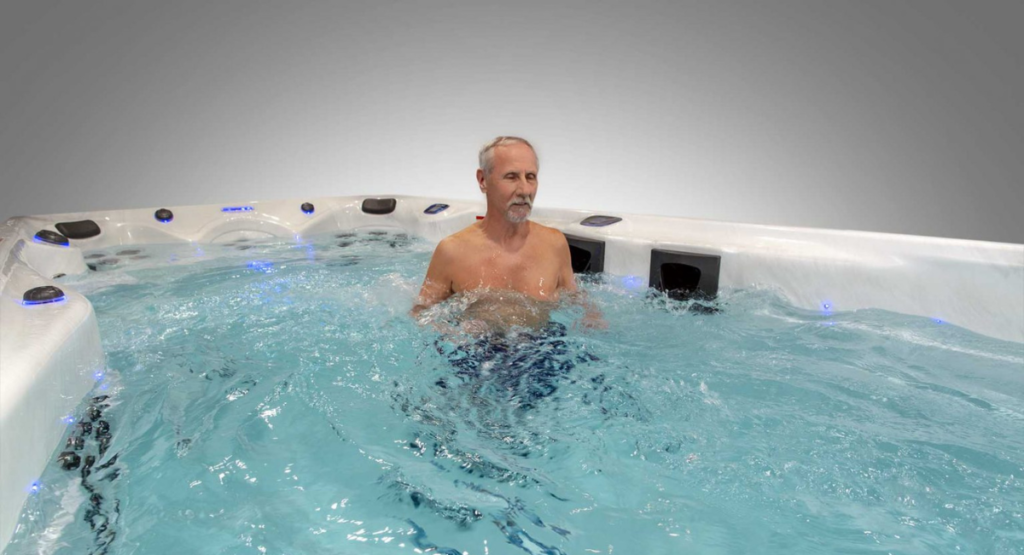Imagine stepping into a warm pool, feeling the water gently envelop your body, and finding solace in the tranquility it offers. Now, envision this serene setting as more than just a place of relaxation but as a potential remedy for the challenges posed by Parkinson’s disease. Hydrotherapy, often regarded as a therapeutic marvel, has been gaining attention for its promising effects on various health conditions, including Parkinson’s disease. But can hydrotherapy truly make a difference in the lives of those battling this neurological disorder? Let’s dive deeper into the waters of hydrotherapy and its potential impact on Parkinson’s disease.
Understanding Parkinson’s Disease
Before delving into the realm of hydrotherapy, it’s essential to grasp the nature of Parkinson’s disease and its profound implications on the lives of affected individuals. Parkinson’s disease is a progressive neurodegenerative disorder characterized by the deterioration of dopamine-producing neurons in the brain. This neurotransmitter, dopamine, plays a crucial role in facilitating smooth, coordinated movements. As the disease progresses, individuals may experience a wide array of symptoms, including tremors, rigidity, bradykinesia (slowness of movement), and postural instability, which significantly impact their quality of life.
Traditional Approaches and Their Limitations
While conventional treatments such as medication, physical therapy, and deep brain stimulation have been instrumental in managing Parkinson’s symptoms, they often come with limitations and may not provide comprehensive relief for all individuals. Moreover, some medications may entail adverse side effects or lose their efficacy over time, leaving patients and their caregivers in search of alternative or adjunctive therapies to alleviate symptoms and enhance overall well-being.
Exploring the Therapeutic Potential
Hydrotherapy, also known as aquatic therapy or water-based exercise, harnesses the unique properties of water to promote physical and mental well-being. By immersing oneself in water, individuals experience buoyancy, reduced gravitational forces, and increased resistance, creating a conducive environment for therapeutic interventions. While hydrotherapy has long been recognized for its benefits in rehabilitation and pain management, its potential applications in neurological conditions like Parkinson’s disease have sparked growing interest among researchers and healthcare professionals.
How Hydrotherapy May Benefit Parkinson’s Patients
So, how exactly can hydrotherapy help individuals living with Parkinson’s disease? The answer lies in its multifaceted approach to addressing the diverse symptoms and challenges associated with the condition. Firstly, the buoyancy of water provides support and reduces the risk of falls, which is particularly crucial for individuals with balance and gait disturbances common in Parkinson’s disease. Additionally, the resistance offered by water enhances muscle strength, flexibility, and range of motion, aiding in combating the rigidity and bradykinesia characteristic of the disease. Moreover, the soothing properties of water can promote relaxation, alleviate stress, and improve sleep quality, thereby contributing to overall well-being.
Evidence Supporting Hydrotherapy’s Efficacy
While the concept of hydrotherapy’s benefits for Parkinson’s disease may seem intuitive, it is essential to examine the evidence supporting its efficacy. Several studies have investigated the effects of hydrotherapy on Parkinson’s symptoms, with encouraging findings. For instance, a systematic review published in the Journal of Parkinson’s Disease concluded that aquatic exercise interventions were associated with improvements in balance, gait, and quality of life among individuals with Parkinson’s disease. Another study published in the European Journal of Physical and Rehabilitation Medicine reported significant improvements in motor function and mobility following a hydrotherapy program in Parkinson’s patients.
Implementing Hydrotherapy in Parkinson’s Care
Now that we’ve explored the potential benefits of hydrotherapy, you may be wondering how to incorporate it into your Parkinson’s care regimen. Fortunately, many healthcare facilities offer hydrotherapy programs specifically designed for individuals with neurological conditions, including Parkinson’s disease. These programs typically involve supervised aquatic exercises tailored to the individual’s needs and abilities, conducted by experienced physiotherapists or aquatic therapists. Additionally, some community centers or rehabilitation centers may offer hydrotherapy classes or access to therapeutic pools equipped with specialized features for safe and effective aquatic exercise.
Precautions and Considerations
While hydrotherapy holds promise as a complementary therapy for Parkinson’s disease, it’s essential to approach it with caution and consideration of individual circumstances. Before starting a hydrotherapy program, individuals should consult with their healthcare providers, particularly neurologists or physiotherapists familiar with their medical history and condition severity. Additionally, certain precautions may be necessary, such as monitoring water temperature to prevent overheating or ensuring the presence of trained staff to assist individuals with mobility challenges or balance issues.
Personal Testimonials and Success Stories
Beyond scientific evidence and clinical trials, the true impact of hydrotherapy on Parkinson’s disease can be gleaned from the firsthand experiences of those who have embraced this therapeutic modality. Many individuals living with Parkinson’s disease have reported profound improvements in mobility, confidence, and quality of life through regular participation in hydrotherapy sessions. From regaining independence in daily activities to rediscovering joy in movement, these personal testimonials underscore the transformative potential of hydrotherapy in navigating the challenges of Parkinson’s disease.
Conclusion
In conclusion, the question of whether hydrotherapy can help with Parkinson’s disease seems to be met with a resounding affirmative. Through its unique blend of buoyancy, resistance, and therapeutic properties, hydrotherapy offers a promising avenue for managing symptoms, enhancing mobility, and promoting overall well-being in individuals living with Parkinson’s disease. While further research and exploration are warranted to fully elucidate its mechanisms and optimize its implementation, the growing body of evidence and personal anecdotes alike attest to the transformative power of hydrotherapy in the journey towards wellness amidst Parkinson’s disease.
We are India’s first comprehensive continuum care provider. We provide multidisciplinary out of hospital care to acute and post-acute and chronically ill patients at our critical care facilities and your home.


